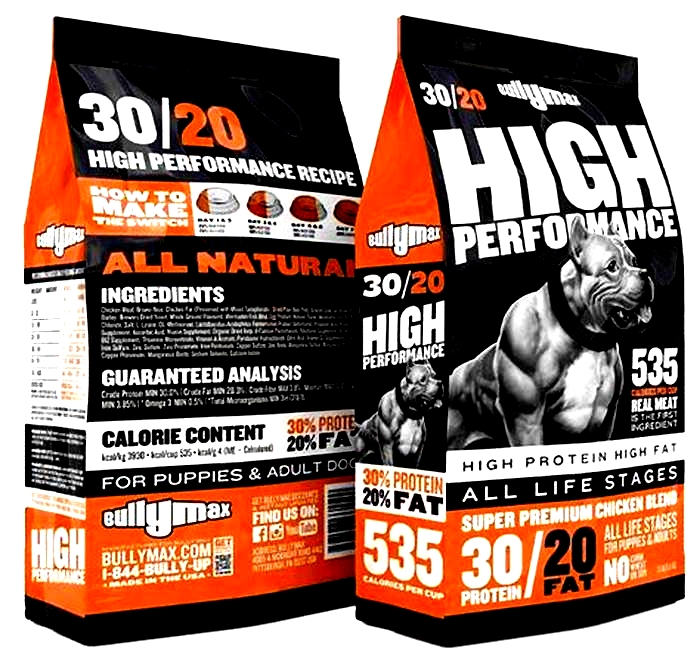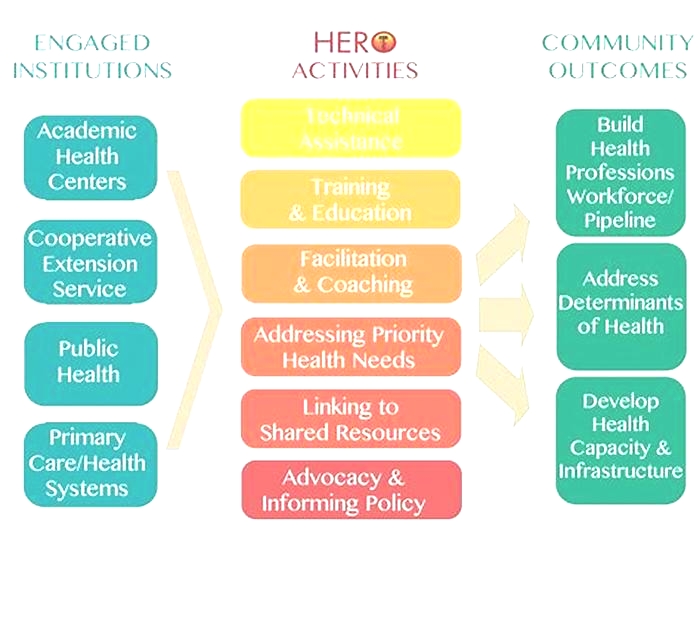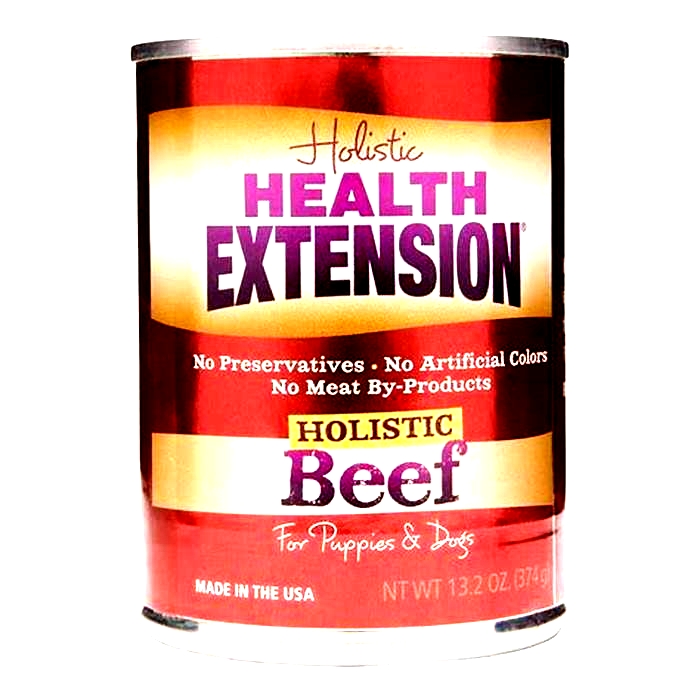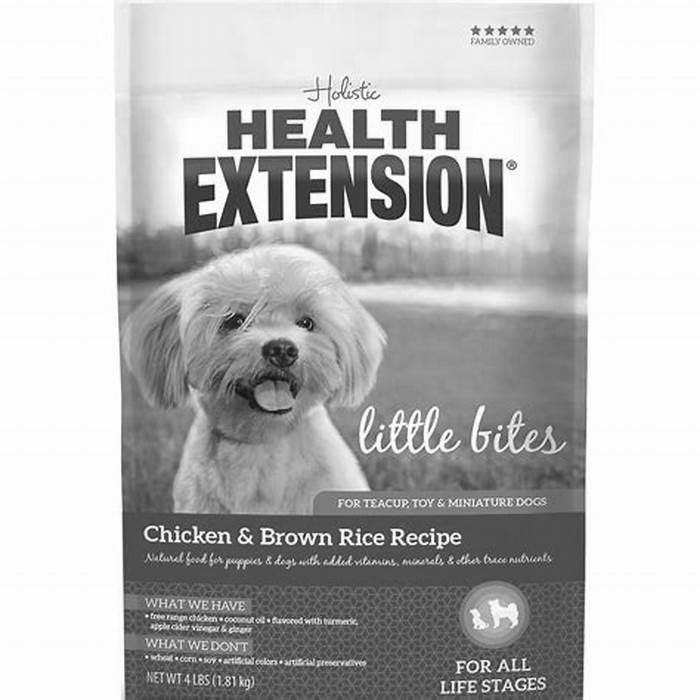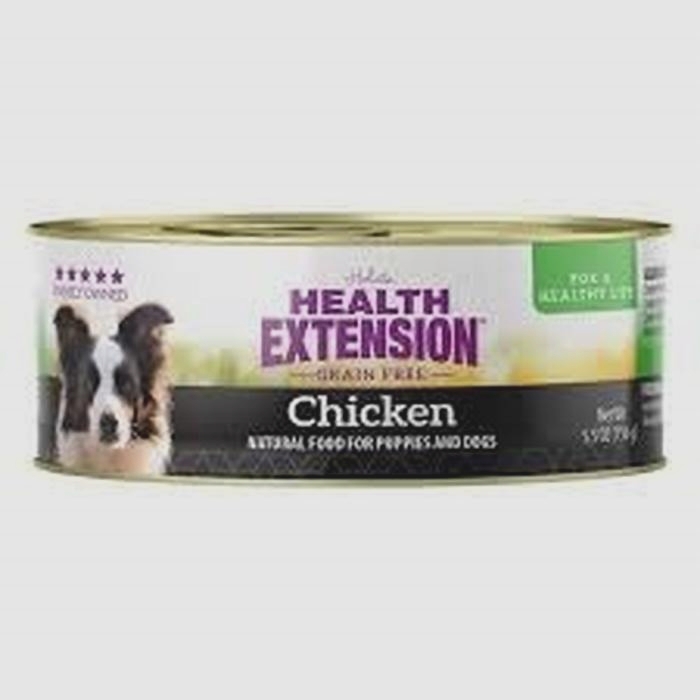health extension dog food problems
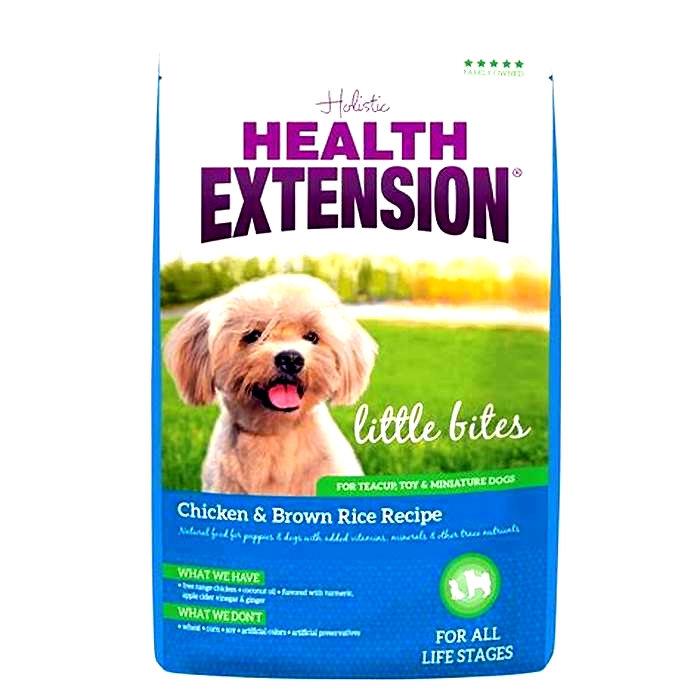
Health Extension Dog Food Review (Canned)
Health Extension Dog Food Review (Canned)
By Mike Sagman
Updated: March 22, 2024
DogFoodAdvisor is reader supported See how
All reviews are 100% impartial but if you buy using links on this page, we may earn a referral fee.
Which Health Extension Recipes Get Our Best Ratings?
Health Extension canned dog food receives the Advisors second-highest tier rating of 4 stars.
The Health Extension product line includes the 9canned dog foods listed below.
Each recipe below includes its AAFCO nutrient profile when available Growth (puppy), Maintenance (adult), All Life Stages, Supplemental or Unspecified.
Recipe and Label Analysis
Health Extension Grain Free Turkey Entree was selected to represent the other products in the line for detailed recipe and nutrient analysis.
Label and nutrient data below are calculated using dry matter basis.
Health Extension Grain Free Turkey Entree
Estimated Dry Matter Nutrient Content
Turkey, chicken, chicken broth, sweet potatoes, carrots, blueberries, cranberries, guar gum, potassium chloride, minerals (zinc proteinate, iron proteinate, copper proteinate, manganese proteinate, sodium selenite, cobalt proteinate, potassium iodide), agar-agar, natural flavor, choline chloride, vitamins (vitamin E supplement, thiamine mononitrate, niacin supplement, d-calcium pantothenate, vitamin A supplement, riboflavin supplement, biotin, vitamin B12 supplement, pyridoxine hydrochloride, vitamin D3 supplement, folic acid), sodium carbonate
Fiber (estimated dry matter content) = 1.5%
Red denotes any controversial items
| Guaranteed Analysis | 9% | 9% | NA |
| Dry Matter Basis | 10% | 9% | 73% |
| Calorie Weighted Basis | 9% | 21% | 69% |
Ingredient Analysis
The first ingredient in this dog food is turkey. Turkey is considered the clean combination of flesh and skin derived from the parts or whole carcasses of turkey.1
Turkey is naturally rich in the ten essential amino acids required by a dog to sustain life.
The second ingredient is chicken, another quality addition.
The third ingredient is chicken broth. Broths are of only modest nutritional value. Yet because they add both flavor and moisture to a dog food, they are a common component in many canned products.
The fourth ingredient includes sweet potatoes, which are a gluten-free source of complex carbohydrates in dog food. They are naturally rich in dietary fiber and beta carotene.
The fifth ingredient lists carrots. Carrots are rich in beta-carotene, minerals and dietary fiber.
The sixth ingredient includes blueberries. Blueberries are a good source of vitamins, minerals and dietary fiber.
The seventh ingredient lists cranberries, a nutrient-rich fruit thats also high in fiber.
The next item is guar gum, a gelling or thickening agent found in many wet pet foods. Refined from dehusked guar beans, guar gum can add a notable amount of dietary fiber to any product.
From here, the list goes on to include a number of other items.
But to be realistic, ingredients located this far down the list (other than nutritional supplements) are not likely to affect the overall rating of this Health Extension product.
With 2 notable exceptions
First, this food includes chelated minerals, minerals that have been chemically attached to protein. This makes them easier to absorb. Chelated minerals are usually found in better dog foods.
And lastly, this recipe contains sodium selenite, a controversial form of the mineral selenium. Sodium selenite appears to be nutritionally inferior to the more natural source of selenium found in selenium yeast.
Nutrient Analysis
Based on its ingredients alone, Health Extension canned dog food looks like an above-average wet product.
The dashboard displays a dry matter protein reading of 41%, a fat level of 39% and estimated carbohydrates of about 13%.
As a group, the brand features an average protein content of 41% and a mean fat level of 29%. Together, these figures suggest a carbohydrate content of 21% for the overall product line.
And a fat-to-protein ratio of about 70%.
Which means this Health Extension product line contains..
Near-average protein. Above-average fat. And below-average carbs when compared to a typical wet dog food.
Free of any plant-based protein boosters, this looks like the profile of a wet product containing a notable amount of meat, except for the Vegetarian recipe.
However, with 21% of the total calories in our example coming from fat versus just 9% from protein, some recipes may not be suitable for a dog on a low fat diet.
Our Rating of Health Extension Canned Dog Food
Health Extension lists both grain-inclusive and grain-free canned dog foods using a notable amount of named meats as its dominant source of animal protein, thus earning the brand 4 stars.
Highly recommended.
Related Topics
Readers interested in Health Extension wet dog food may also wish to check out these popular pages, too
Health Extension Dog Food Recall History
The following automated list (if present) includes all dog food recalls related to Health Extension through April.
No recalls noted.
You can view a complete list of all dog food recalls since 2009 here.
Get Free Recall Alerts
Get free dog food recall alerts sent to you by email. Subscribe to The Advisors recall notification list.
More Health Extension Brand Reviews
The following Health Extension dog food reviews are also posted on this website:
Compare This Dog Food
How does this brand compare with The Dog Food Advisor's most recommended brands?
A Final Word
The Dog Food Advisor does not accept money, gifts, samples or other incentives in exchange for special consideration in preparing our reviews.
However, we do receive a referral fee from online retailers (like Chewy or Amazon) and from sellers of perishable pet food when readers click over to their websites from ours. This helps cover the cost of operation of our free blog. Thanks for your support.
For more information, please visit our Disclaimer and Disclosure page.
FDA pet food investigation: What to know about diet-related heart disease
Since the Food and Drug Administration first warned about a possible link between a potentially fatal canine heart condition and grain free pet foods in 2018, owners and veterinarians have continued to report cases of dogs developing diet-related dilated cardiomyopathy, or DCM.
DCM is a disease in which the heart gets larger, leaving it weaker and less able to pump blood.Some breeds of dogs, including the Doberman pinscher, the Great Dane, the Boxer, and the cocker spaniel, are known to be at greater risk for the condition. Golden retrievers are especially vulnerable to developing DCM if their diet leaves them deficient in an amino acid called taurine.
The FDAs most recent tally of dogs, and a much smaller number of cats, with diet-related DCM included 1,382 cases, 255 of which had been determined between Aug. 1, 2020, and Nov. 1, 2022.
In 2019, the FDA named 16 brands of dog food associated with the rare form of heart disease, although it didn't suggest that owners stop giving the food, which often contains high levels of peas, lentils and potatoes, to their pets.
Researchers and veterinarians don't yet know exactly how dog and cat food might cause damage to some pets hearts, but a study published in 2021 suggested that a culprit could be the high levels of peas in certain pet foods.
That finding was backed up in May when Canadian scientists published a study on the effects of a 28-day diet on eight adult beagle dogs, a breed chosen because it's not known to be susceptible to the heart condition. The veterinary researchers from the University of Saskatchewan fed the dogs one of three diets: a traditional diet; a grain-free diet high in lentils; and a grain free diet high in peas. They then repeated the experiment with the other two diets so that all the beagles had experience with all three diets. The researchers observed DCM-like changes in dogs that had been consuming the pea diet for 28 days.
Its not yet clear what it is about peas that could be harming pet hearts, said the studys senior author, Lynn Weber, a professor of veterinary biomedical sciences at the University of Saskatchewan Western College of Veterinary Medicine.
One possibility is the amount of fiber in peas. I suspect if we remove all peas from all dog and cat foods were still going to run into a problem, Weber said, noting that more research is needed to find out what it is about the peas and possibly other ingredients that is leading to heart damage.
The best evidence relating DCM to certain diets is how dogs' hearts improve once they are switched to a traditional diet, said Dr. Aly Cohen, an associate veterinarian at the Riney Canine Health Center and a clinical instructor at the Maddies Shelter Medicine Program at Cornell Universitys School of Veterinary Medicine.
The peak in the number of reports 608 between May 1, 2019, and July 31, 2020 came shortly after the FDA released the brand names of the pet foods that appeared to be linked to the development of DCM.
FDA spokeswoman Veronika Pfaeffle noted that the agencys investigation of the issue continues but cautioned against reading too much into the new stats.
While adverse event numbers can be a potential signal of an issue with an FDA regulated product, by themselves, they do not supply sufficient data to establish a causal relationship with reported product(s), Pfaeffle said in an email. The FDA hasnt recalled any pet food products, and the agency doesnt plan to release further public updates until there is meaningful new scientific information to share.
While the rate of new cases seems to have slowed, experts say the problem may be more widespread than the number of reports suggests.
Dr. William Rausch says his cardiology practice still sees about one new case every week. And because studies have found that dogs can be developing DCM for years without symptoms, it suggests that for every case I see there are many more [dogs] walking around out there that seem normal but are developing the disease, said Rausch, a veterinary cardiologist in private practice and an adjunct professor at the University of Washington in Seattle.
The Pet Food Institute, an industry group that represents most pet food companies in the U.S., appreciates the FDAs attention to the issue, Sherri Kirk, a spokesperson for the organization, said in an email. Our members continue to conduct research to determine the highest quality and safest ingredients to provide complete and balanced dog food to help dogs live long and healthy lives.
Symptoms to watch for
For the most part, dogs dont show any signs until they are experiencing heart failure, said Dr. Terri DeFrancesco, a professor of cardiology and critical care at North Carolina State University College of Veterinary Medicine.
Signs that a dog is developing heart failure include:
- Decreased activity.
- Tiredness.
- Lethargy.
- Coughing.
- Shortness of breath.
- Decreased appetite.
For dog and cat owners, the discovery that carefully chosen foods could have damaged the heart of a beloved pet can be wrenching.
Julie Carter was stunned when her 3 1/2-year-old golden retriever Oliver was diagnosed first with a heart murmur and then, after an echocardiogram, with full-blown DCM in February 2018. A short time after that, Carters other golden retriever was diagnosed with DCM but at an earlier stage than Oliver.
After explaining the condition, Carters vet asked what type of dog food Oliver had been eating. It was really horrifying to think that I could have in any way been responsible because of my choice of his diet, the Florham Park, New Jersey, resident told NBC News.
Carter switched both dogs to a food with a more traditional formulation and started them on heart medication. But the damage to Olivers heart was too great and within six months, he died. Carters other dog, Riley, eventually recovered.

Before the first FDA advisory, some vets had already been seeing cases of DCM that appeared to be related to certain dog foods.
The first case I saw was in 2017, said DeFrancesco.
The veterinary cardiologist said she used to report every case, but with news coverage of the issue and the loss of the staff member who used to handle FDA reports, she has stopped. Its likely that the reports to the FDA are just the tip of the iceberg, because many owners and vets dont have time to fill out the forms, DeFrancesco said.
DeFrancesco believes that diet-related DCM is most likely multifactorial, with some pets inheriting a genetic susceptibility that is triggered by certain types of diets.
Millions of dogs eat these diets but millions do not get DCM, she said, adding that she advises pet owners to avoid nontraditional formulations because it can't be known in advance whether a pet might be susceptible.
There is a way for pet owners who dont want to switch from their nontraditional brand of pet food to check on heart health, said Dr. Joe Bartges, a professor of internal medicine, interventional radiology and nutrition at the Veterinary Medical Center at the University of Georgia.
There are biomarkers that can look at whether the heart muscle has been damaged, Bartges said, adding that veterinarians can run a blood test that measures levels of a protein called BNP.
Cornell's Cohen advises owners to steer clear of any pet foods that have these listed in the top 10 ingredients:
- Peas.
- Lentils.
- Chickpeas.
- Potatoes or sweet potatoes.
Even with the news coverage of diet-related DCM, there are owners who are not familiar with the issue. Carter, who participates in a Facebook DCM group, recently heard from another golden retriever owner whose dog had died from the condition.
Her 5-year-old golden retriever had died two months ago after being fed one of the diets linked to this disease, Carter said. Her loss hit me hard, especially considering her dogs age and breed. I put my head down on my desk and cried.
CLARIFICATION: (Aug. 27, 6:50 p.m. ET): An earlier version of this article did not include the full response from the FDA. It has been updated to reflect that the agency says it hasnt established a causal relationship between heart damage and the reported pet food products.

